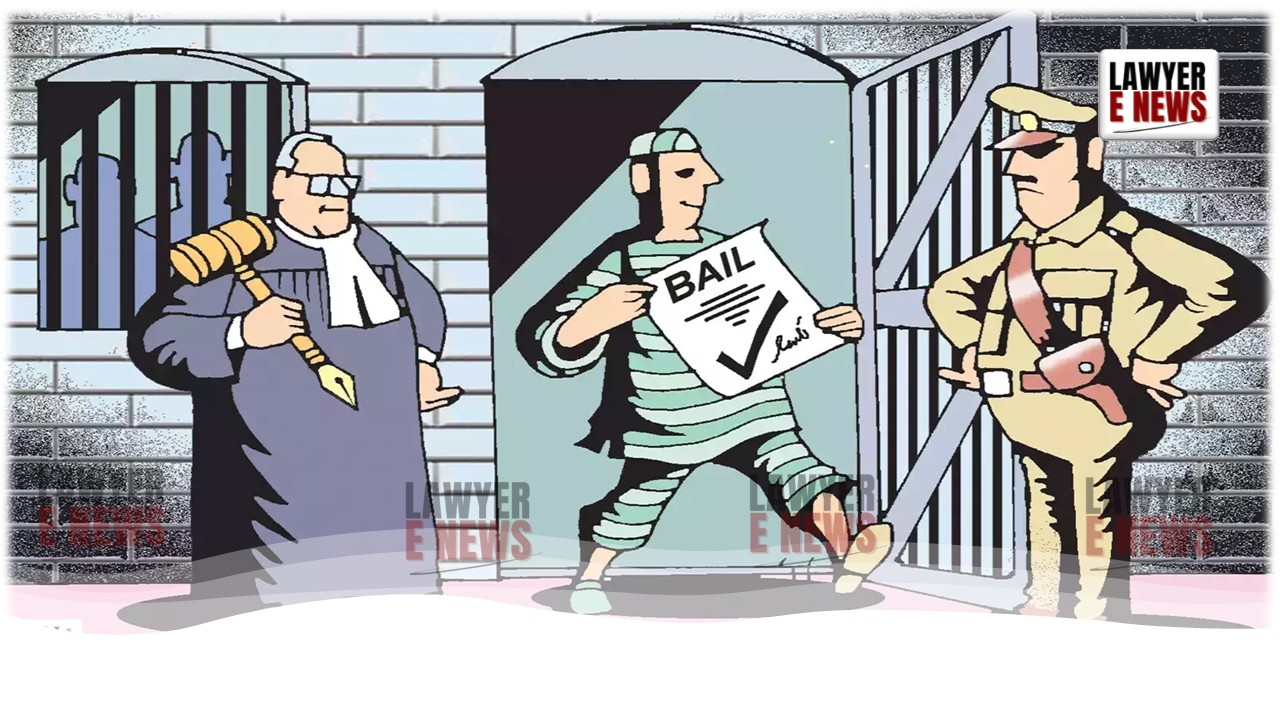-
by Admin
15 February 2026 2:36 AM



In a significant ruling, the Rajasthan High Court has denied bail to Laxman Charan, accused of raping an 11-year-old girl, and categorically rejected the legitimacy of any compromise between the accused and the victim's family. The judgment, delivered by Justice Rajendra Prakash Soni on August 21, 2024, underscores the court’s stance that in cases involving minors, the law overrides any private agreements, particularly in offenses under the Protection of Children from Sexual Offences (POCSO) Act.
On June 20, 2024, the 11-year-old victim, referred to as "Miss A" for privacy, reported to the Javda Police Station that she had been raped by Laxman Charan, a 34-year-old tarpaulin seller. On the day of the incident, the accused, who was known to the family, visited the victim's home. After consuming alcohol with the victim’s father, who later fell asleep, Charan lured the child to a nearby bathroom under the pretense of buying a "pouch of gutka" with the money he gave her. Once inside the bathroom, he forcibly undressed the victim and raped her. The victim managed to escape and immediately informed her mother, who then alerted her father. Upon discovery, the father tried to confront Charan, who fled the scene.
The First Information Report (FIR) was lodged the same day, and Charan was subsequently arrested and charged under several sections of the Indian Penal Code (IPC), the POCSO Act, and the SC/ST (Prevention of Atrocities) Act. The charges include Section 376(2)(f) IPC (rape), Sections 5(m)/6 of POCSO Act (aggravated penetrative sexual assault), and Sections 3(1)(w) and 3(2)(v) of the SC/ST Act.
The defense argued that the victim had initially denied the incident during her Section 161 CrPC statements but later changed her stance during her Section 164 CrPC deposition before the Magistrate. Moreover, the defense highlighted that a compromise had been reached between the accused and the victim's family, presenting it as grounds for bail. However, the court dismissed these arguments, stating unequivocally that such a compromise holds no legal value in cases involving minors.
Justice Soni asserted, "The idea behind dismissing such compromises is that the law recognizes minors as vulnerable individuals who lack the capacity to make fully informed decisions. Any agreement made under such circumstances is inherently suspect and cannot be given effect to in the eyes of the law."
The court stressed that crimes of this nature, particularly against minors, demand rigorous legal scrutiny and that the judicial process should proceed irrespective of any private settlements. The ruling emphasized the court's duty to act in the best interest of the child, especially in cases where external pressures or coercion may have influenced the victim or their family to settle. Justice Soni stated, "Allowing a compromise to dictate the outcome of such a serious offense would undermine the judicial process and potentially embolden similar crimes."
The Public Prosecutor, opposing the bail application, reinforced the victim’s account as recorded under Section 164 of the CrPC, where she provided a clear and detailed account of the incident. The prosecutor argued that the gravity of the offense, combined with the legal framework provided by the POCSO Act, demanded a strict approach, leaving no room for leniency in the form of bail.
The court’s decision hinged on the principles established by the POCSO Act, which prioritizes the protection of minors and the prosecution of offenders over any form of private resolution. The judgment reiterated that in such cases, the state acts as the guardian of the child’s rights, ensuring that justice is served without interference from private agreements that may not reflect the true interests of the victim.
Justice Rajendra Prakash Soni remarked, "The state has an unwavering duty to prosecute crimes against minors with full rigor. Compromises in such cases often reflect coercion rather than a genuine settlement and cannot be allowed to undermine the legal process."
The Rajasthan High Court's denial of bail to Laxman Charan sets a strong precedent in cases involving sexual offenses against minors, reinforcing the principle that such crimes are to be met with full legal force. By rejecting the compromise and emphasizing the importance of rigorous judicial scrutiny, the court has reinforced the protective intent of the POCSO Act. This judgment is expected to influence future cases, ensuring that the rights and welfare of minor victims are upheld above all else.
Date of Decision: August 21, 2024
